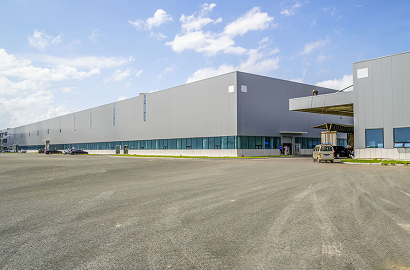Proequity forecasts boost in logistics infrastructure investment in Spain by 2025

The consultancy firm appraises the exponential growth of the industry in Spain in recent years.
Stabilisation of interest rates in 2025 will further boost investment in logistics infrastructure in Spain. This is one of the five trends that, according to the consultancy firm Proequity, which specialises in real estate transactions, will shape the real estate market in the coming year. Cities like Barcelona, Madrid and Valencia will be the main beneficiaries of this boost.
According to the consultancy firm, the exponential growth experienced by the real estate market in Spain in recent years has consolidated it as one of the Spanish economy’s main drivers. To address current challenges, the trend analysis takes an in-depth look at land availability and management, investment opportunities, the role of multimodal transport, sustainability and the need to attract skilled talent.
Land availability
As Proequity explains, the first challenge will be to address the lack of available land for developing logistics platforms. Metropolitan areas like Madrid and Barcelona, with environmental restrictions and complex administrative processes, complicate developers’ work. Therefore, the consultancy firm proposes developing new logistics zones in emerging regions, such as Malaga, Seville, Zaragoza and Vitoria.
The report also recommends implementing new technologies and innovative formats to optimise available space, as well as designing policies to facilitate the transformation, adaptation and restoration of land for logistics use.
Investment interest
The role of the logistics industry in the supply chain keeps investors' interest alive. As Javier Molino, partner at Proequity, points out, “the industry has good foundations in terms of market occupancy and is expected to perform better in the coming months”. He adds that investment opportunities “focus on modern, well-located and technologically advanced assets, driven by the rise of e-commerce”.
The third trend is the adoption of multimodal transport, which, according to the consultancy, is redefining logistics in Spain by driving greater efficiency, sustainability and supply chain optimisation. According to Proequity, the demand for logistics infrastructure that responds to the needs of the last mile, derived from the boom in e-commerce, has driven the development of rail connections with seaports and the creation of intermodal platforms.
Investments by large companies
The need to deliver goods in ever shorter times is behind large companies' investments in logistics platforms that facilitate multimodal transport. According to Proequity CEO David Martínez, “modern logistics facilities are evolving to incorporate technologies and designs that favour efficiency and sustainability, which means that the logistics industry is continually adapting to the requirements of digital commerce”.
Sustainability has become the fourth trend, due to both new national and international regulations and consumer demands. As a result, the industry has adopted practices such as using renewable energy, adopting sustainability certifications and prioritising worker and community wellbeing, from thermal control in warehouses to the incorporation of rest areas and services like cafeterias. Proequity adds what it calls a major challenge: the possibility of building housing close to logistics platforms to improve the wellbeing of their employees.
The report concludes with a fifth challenge, which is the lack of qualified professionals in areas like logistics and transport. The consultancy firm proposes to respond to this need with initiatives such as promoting training programmes, salary improvements and implementing economic and corporate benefits and work-family reconciliation programmes.
Photo: Proequity




